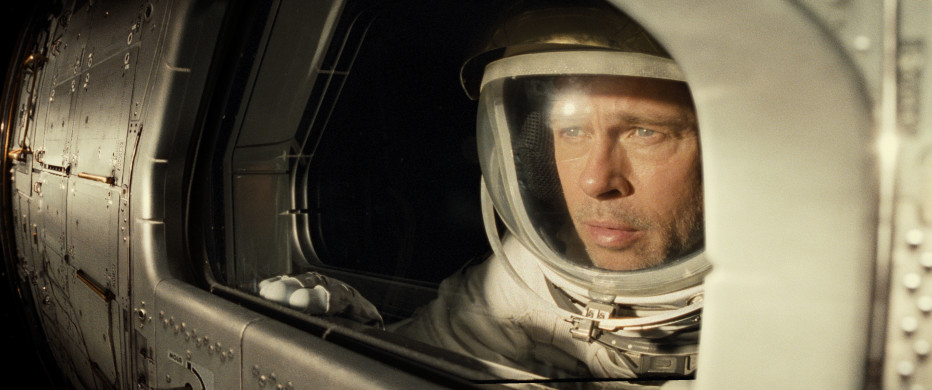AD Astra
Space travel is about exploring the vast unknown that lies in the darkness, and Ad Astra is indeed focused on exploring dark areas—specifically, those found in the mind of Major Roy McBride. The trip to Neptune, despite being Roy’s mission, is merely the vehicle for the introspective exploration into his purpose and identity. I’d venture to say the only reason this premise works because the role is brought to life by Brad Pitt, who deftly manages to convey the universe’s biggest midlife crisis in between battling enemies that include lunar pirates and a biomedical science experiment gone very, very wrong.
So, let’s begin with the film’s strongest points: visuals and casting. And no, I’m not just saying that because of Brad. The film presents a beautiful, dystopian universe that’s equal parts familiar and strange. For example: the moon now has an airport that can be commercially flown to on Virgin. Oh, and there is an Applebee’s. On the moon.
Digressing.
The moon airport, and other environments in the film, remind us that no matter what space humans inhabit, we have a strong tendency to muck things up. There were enough elements of the world we recognize to make it seem all the more like a reality we could soon experience for ourselves, which only deepened the psychological underpinnings of the film. Solid acting and an edit style that really let Brad fill the space with his character’s emotions made for a human, relatable feel—which is saying quite a bit, since his character is a man who’s been tasked with a mission to locate his father (played by Tommy Lee Jones) who was presumed dead for 30 years, but dun dun dun may still be hanging out near Neptune.
If it seems like the weak points are coming up, you’re right.
You might’ve thought a film titled Ad Astra was going to bring the future of space, science, and technology to life, but those themes are merely the backdrop against which Roy’s inner turmoil plays out. Ad Astra runs for two hours and three minutes, and for the majority of that time, we are looking at Brad Pitt in various stages of psychological musing and unraveling. A dry, journaled monologue of Roy’s thoughts play over a mix of tightly-framed shots of Pitt’s face and wide-angle views that illustrate his isolation within a space.
I wanted to linger on the concourse of the airport on the moon, spend a bit more time racing across its surface on the lunar buggy, see more of the process that goes into launching from the moon and setting a course for Neptune. But that’s simply not this film. If Ad Astra is out to explore the question about what life will be like in a future where we can inhabit other planets, then the main takeaway is that your flight there will give you…plenty of time to think.




